The women 'crushing' stereotypes in video game development
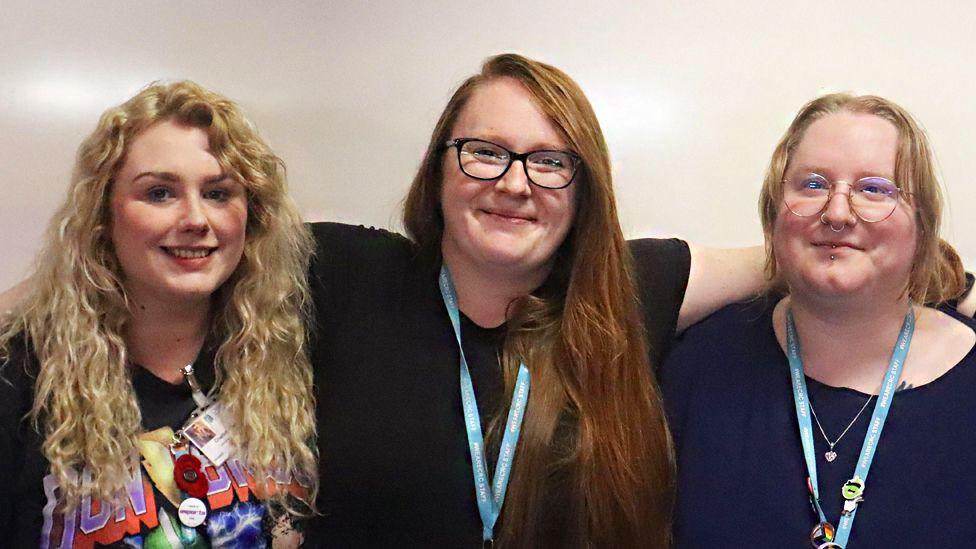
Charlotte Render, Laurie O'Mahony and Stephanie Dunk-Chappell all teach video game development to sixth form students
- Published
When Stephanie Dunk-Chappell started teaching teens to make video games, she got a lot of "are you in the right room?". The now 26-year-old says it motivated her to carry on "if only out of spite". She is among three female lecturers at a Cambridge sixth form college who says it is game over for gender stereotypes in the gaming industry.
Gamers will tell you the image of a male, nerdy gamer has died in recent years, with no chance of respawning (gaming parlance for dying and coming back to life).
But a significant gender gap remains in the industry when it comes to the people working in it.
Stephanie Dunk-Chappell, Laurie O'Mahony and Charlotte Render are among those trying to change that and inspire the next generation.
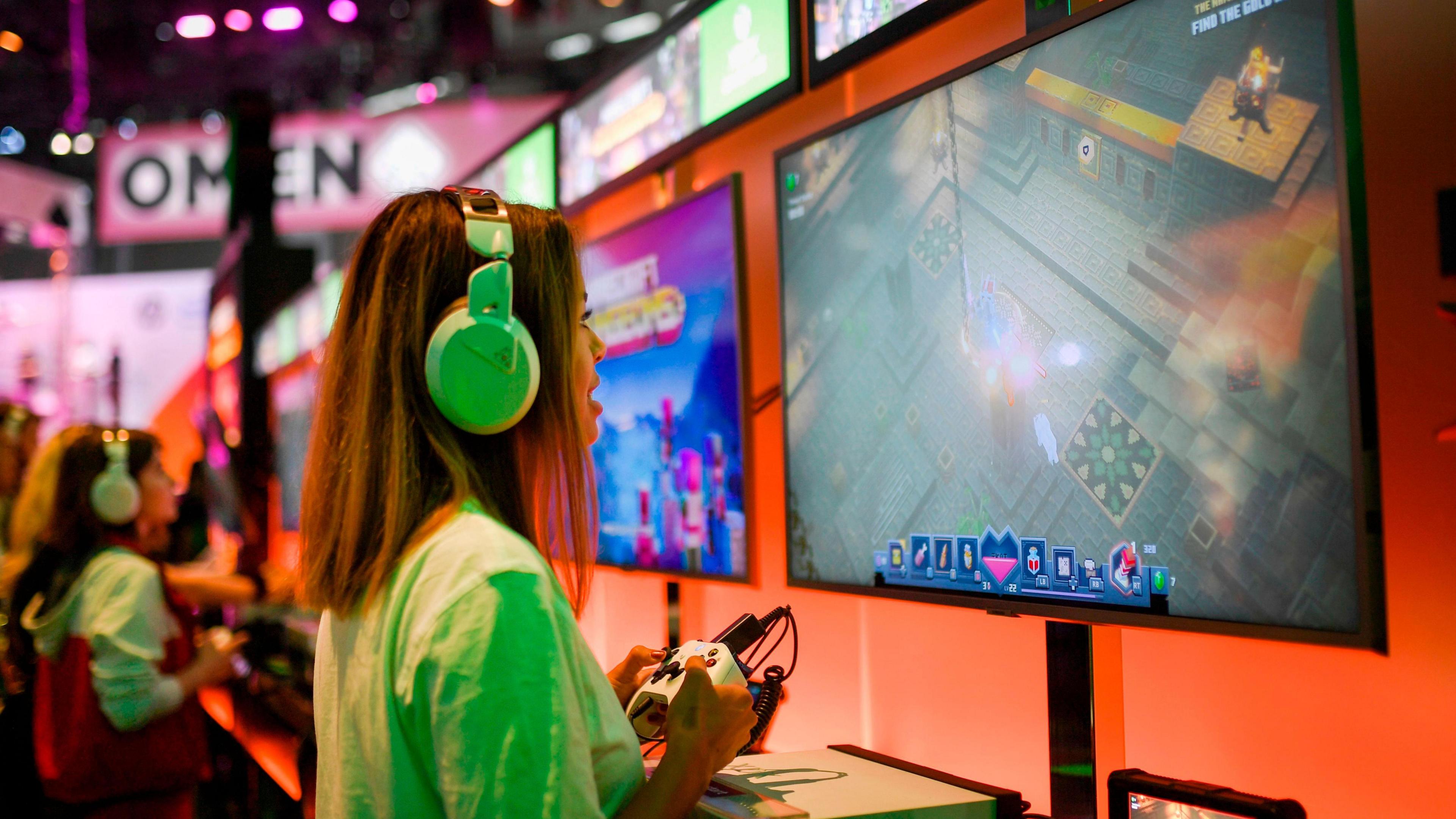
Changing social attitudes mean women make up nearly half of all gamers
Decades ago, women in video games had very exaggerated figures - Tomb Raider's Lara Croft being an often referenced example.
But the three lecturers at Cambridge Regional College say modern characters, such as Ellie from The Last of Us, are more realistic, and that has led to women being more interested in gaming.
Females now account for nearly half of all gamers, external, according to NewZoo, a market research group that focuses on the sector.
Pop star Raye was chosen to be the new face of Nintendo after the company found more women than ever were playing its games.
The latest instalment in the Grand Theft Auto (GTA) series will have a female protagonist and women are now included in the "ultimate team mode" in EA FC - the game previously known as Fifa.
But despite this, the trade body that represents the UK gaming industry, the UKIE, found that out of the 26,600 people currently working in the field, external, 67% are men, 30% are women and 3% identify as non-binary.
'I can do it and I will do it'
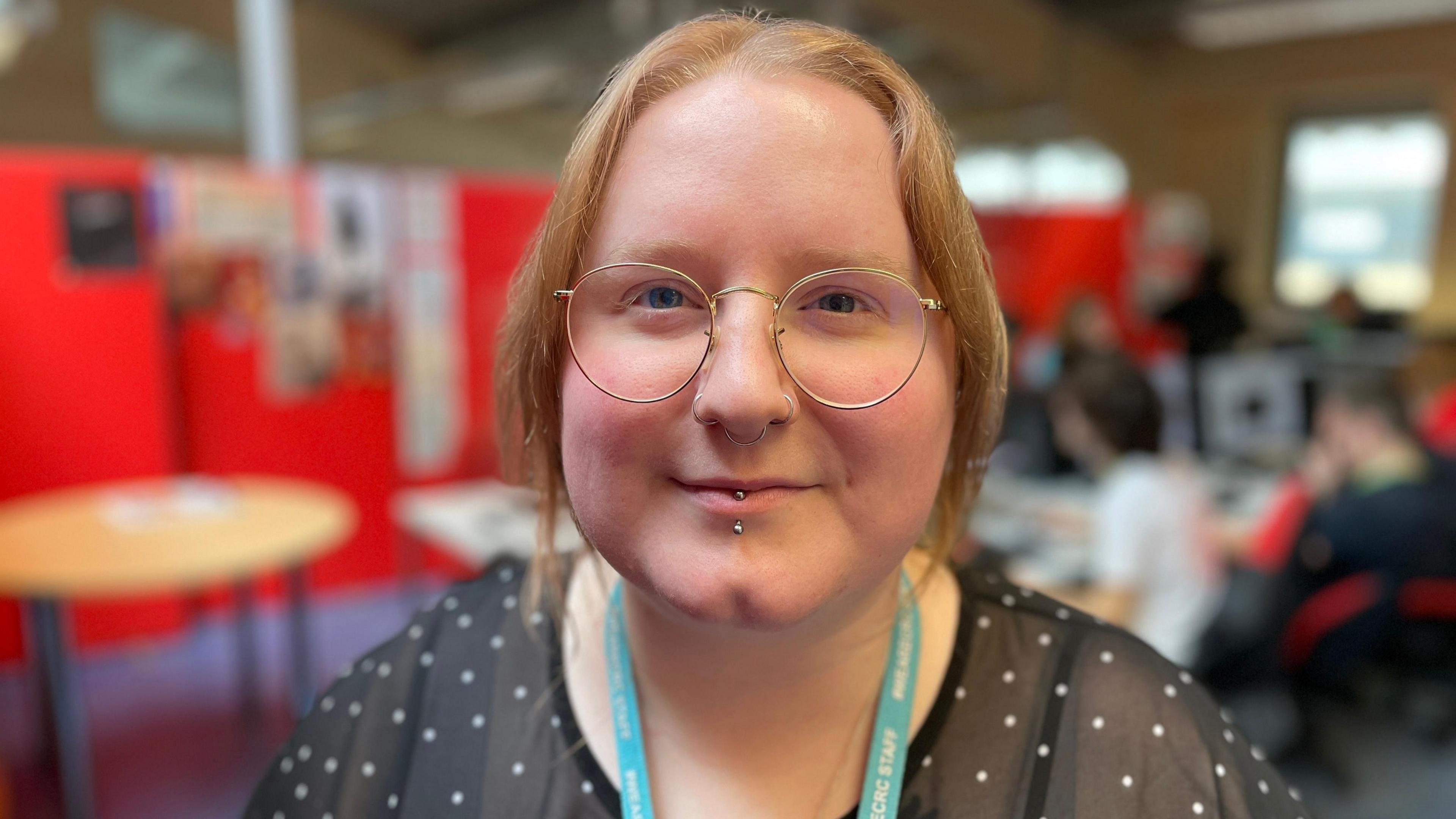
Stephanie says any outdated assumptions from students are overwritten quite quickly when they realise the "very wide skill set" of their female lecturers
Stephanie spent all her time as a teenager playing games and watching videos online about the industry.
Now she gets paid to talk about games every day.
She says "the stereotype of a programmer is a man, but we are trying to crush that".
"I think it is really important for students to see us as women in games, and teaching them and say, 'Oh wait. I can do that too.'"
Stephanie says they still get the odd student with a certain outdated mindset, but then they realise the "very wide skill set" of their female lecturers.
But those attitudes are something she has seen her whole gaming life.
"It kind of motivated me to do things out of spite more than anything," she says.
"You do not think I can do this, but I can do it and I will do it."
'If they see a female teacher, they feel relaxed'

Charlotte says having three women teach video game development in the same college is unusual
Three out of the four lecturers who teach games development at the Cambridge college are women - and that representation is having a knock-on effect.
Charlotte, 31, says it has led to more female and trans students enrolling and aiming for careers in the industry.
"At open days, potential students come in and if they see a female teacher they are more likely to [learn about the course] and feel a bit more relaxed."
She specialises in teaching sound for games and E-sports.
She smiles as she points out that one in every 10 students taking the college's E-sports class is female.
I am told that may not seem a lot, but it is far more than there used to be.
'It was daunting being the only female lecturer'
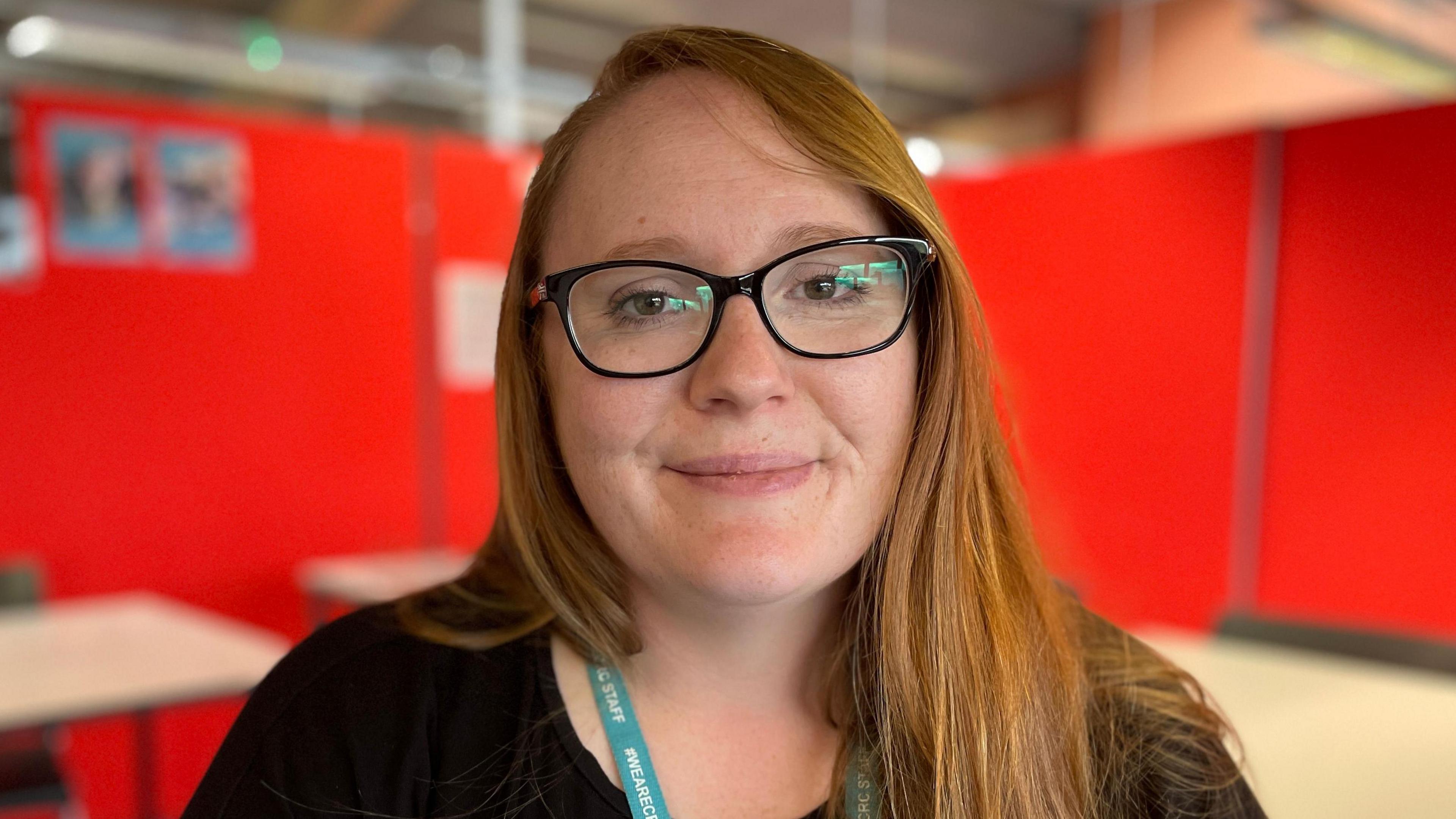
Laurie says it was daunting when she first started lecturing, as she was the only female
When Laurie, 32, was a teenager, women playing video games was not widely accepted.
It was that fact that drove her to teaching games development.
"I am encouraging my students to think about things like accessibility and making sure they are as inclusive in their design as they can be," she says.
"I hope those things will then carry forward into their future roles - always trying to look out for people that can't access things as easily as they've been able to."
Speaking about when she first started seven years ago, she acknowledges "it was a bit daunting being the only female lecturer".
But she credits the supportive team around her for helping her find her way.
Now her students develop games for the Nintendo Switch, Microsoft Xbox and Sony Playstation.
For her, seeing more females in her classes is a really positive thing.
"You know, not being scared of going into tech industries like games, like coding, like computer science, and slowly I hope to see those numbers continue to grow over time.
"In the past, women didn't have as much input. That's how it felt.
"But that scope is starting to change."
Get in touch
Do you have a story suggestion for Cambridgeshire?
Follow Cambridgeshire news on BBC Sounds, Facebook, external, Instagram, external and X, external.
More stories about gaming
- Published18 October 2024

- Published21 October 2024
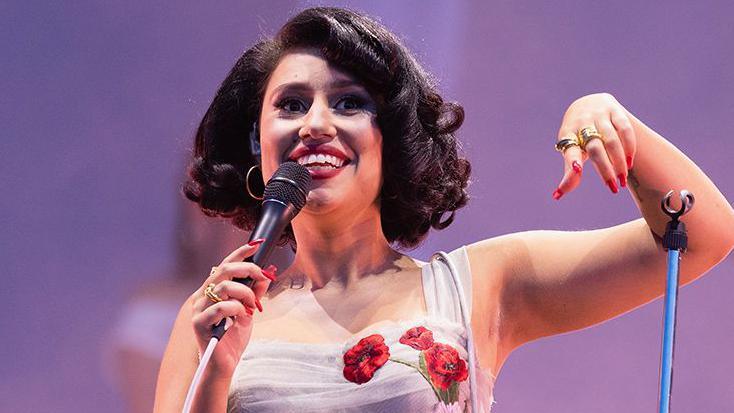
- Published23 October 2024
